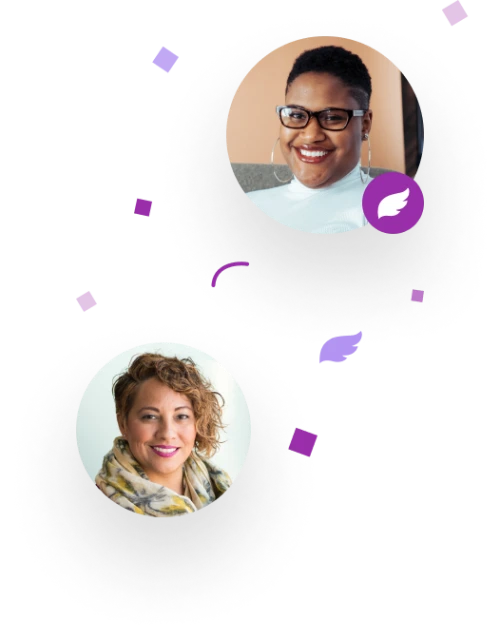Understanding Why You Didn’t Receive a Job Offer
This post is to provide suggestions of what you can do to help you understand why you didn’t get a job offer. Most of these suggestions require you to know the job requirements most important to the hiring managers and to honestly evaluate yourself against the requirements.
1) You didn’t have the preferred skills
The desired skill set is usually defined on the job description. If not, did you ask HR or your recruiter what skills and work experience was most important for someone to have for the position?
Job descriptions will list basic, or preferred requirements, many will even list optimal skills and experiences. Usually, three to five of these qualifications are the most important to the hiring manager. For example, with a job description listing a bachelor’s degree as a basic requirement and a master’s as a preferred requirement, the hiring manager will frequently lean towards someone with a master’s degree. While you may have satisfied all the other criteria for the position, the job may go to someone with a master’s degree because that is what the hiring manager wanted. Evaluate yourself against the first three to five qualifications listed to decide if you had the basic or preferred requirements, and if you had any of the optimal skills. If you had only basic or preferred requirements, the position may have gone to someone who had a better mix of preferred and optimal qualifications.
2) You didn’t demonstrate that you had the desired skills required for the job
During the interview you need to ask the hiring manager and other interviewers what they consider the most important qualifications and skills needed to be successful in the position. These are the skills and experiences you need to speak to in the interview.
As succinctly as possible talk about how you can meet those requirements. Provide examples of your work that demonstrate you can do the job.
3) Recruiting team had concerns about your qualifications
During the interview did you ask the hiring manager and other interviews if they had any concerns based on your application, resume, or stated experiences? This is a key question you should be asking in each interview so that you can close any gaps in their assessment of you and your ability to successfully do the job.
Interviewers may tell you they believe you are lacking a specific experience, or they’re concerned about your ability to communicate clearly. Knowing what they perceive to be your shortcomings opens the door for you to point out or expand on resume points they were not fully considered.
If after addressing these points you don’t get the job offer, you have some potential reasons why. You can then decide if the skills gap was real, or you need to work on how you present yourself. perceived shortcomings.
Looking through this list you can see that several of these points required you to have critically evaluated yourself against the job requirements up front; and then continue to ask questions during the interview process. You can’t effectively sell yourself without understanding the job both as it was presented in the ad, and as you learn more about it in the interview process.
4) Compare yourself to the person who accepted the job
For the next one to six months, scan the employee profiles on LinkedIn for the company. You are looking for the person with the job title of the position for which you didn’t receive an offer. Look at the person’s profile and evaluate who you compare to this individual. The gaps you see in education and experience between you and the person hired provide you with hints of why you didn’t get the job offer.
During the recruiting process, you do your best to prove that you’re a good fit for the job and the company, but you also need to accept that there are times when the decision of who received the job offer was influenced by factors you couldn’t control. For example, you were equally qualified, but you required relocation and the other person didn’t. The job went to the local, more cost effective hire. You were equally qualified, but your competitor was referred by a company employee and the internal referral receive preference.
I hope that these suggestions will not only provide some clarity on why you might not have received the job offer, but also help you better present yourself in the future.
Browse recent posts
THEY LIED TO YOU ABOUT ATS
This post isn’t about how “resume scanners” reject you, score you, or filter you out.
That narrative is driven by fear and a lot of bad marketing.
This article breaks down what ATS actually does (and doesn’t do), why most rejections aren’t automated, and what really determines whether your resume gets seen.
If you’ve been optimizing for software instead of clarity, this will change how you think about hiring.
3 Likes • 1 Comment
Hi all,
Is anyone knows where I can find remote job?
Please let me know is anyone knows where to find or what website.
Thank you all.
1 Like • 0 Comments
Anyone Else Experience Age Discrimination in EdTech?
I'm 55+, have over 20 years of experience in EdTech/IT, and was a top performer at Carnegie Learning (EdTech company in Pittsburgh).
I took FMLA leave for a serious medical condition requiring surgery. While I was out on disability leave, I requested ADA accommodations for my return to work (HR provided the paperwork and required my Dr. to fill out). Instead of accommodating me, they terminated me right before my scheduled return-to-work date. I discovered they posted my exact job duties split between two new positions with lower pay grades while I was on medical leave.
They offered 3 months severance + 3 months COBRA, but only if I dropped my EEOC charges and signed away all legal claims. I refused.
The company has a noticeable pattern of eliminating experienced, but older, employees and rewards younger, less experienced employees. For example, during department layoffs in 2025, they let go of everyone over the age of 50 except myself (the only one left with senior knowledge on a product) and management. The VP of Support Singleton plays favorites, and HR Manager Schuette enables it.
HR ignored my accommodation requests, retaliated against me for taking protected leave, and continued to create issues with benefits and insurance even after termination.
I filed EEOC charges for age discrimination, ADA violations, and FMLA retaliation.
My questions:
Has anyone successfully pursued an age discrimination/ADA case?
What should I realistically expect for settlement vs. actual damages?
Was the fight worth it emotionally and financially?
I'm building resources to help other women over 50 navigate workplace discrimination. If you've been through this, I'd appreciate hearing about your experience.
24 Likes • 10 Comments
Hi, I'm in a technical field, am a perfectionist, am detail oriented and perceptive, and apt to be emotional.
It's always been work to stay calm and not be too sensitive. I'm in my late 40s now and am having perimenopausal symptoms that make my emotional tendencies worse. When I feel really slighted, I feel a tremendous rush of emotion and I have to go take a walk outside and call my husband. An example is, this week, everyone on my team was invited to an innovation ideas call and I was the only one left out. I got very angry to find this out, and it took me about an hour to get back to my work.
What can I even do with myself? I thought it was hard to be professional with my emotional tendencies before. Now it's doubly difficult. Can anyone commiserate with this?
11 Likes • 31 Comments
Years ago I worked in a department where there was an older woman who was an admin everyone thought was crazy.
Turns out she was actually pretty smart. I came in as a possible replacement for another admin. She gave me the skinny on my boss (which didn’t surprise me). She also told me how there were admin lunches where they discussed various issues. When they would ask her she’d just say “I’m good thanks.” That advice is the some of the best that I’ve heard.
20 Likes • 4 Comments
I am 7 weeks pregnant (27F, married) and honestly terrified to tell my team.
My manager (M) had two child’s but the other females managers (older) on my team do not. I am scared they will judge my decision of having kids so early in my career. Personally, I wanted to have kids “earlier” (my parents started way earlier) than 30 but I did not expect to be the only one in my friend group to do so as well. I am scared I may have messed my career progression by having them this early. #spiraling
1 Like • 17 Comments
© 2026 FGB Muse Group Inc.



Share your insight
Join an authentic community that helps women support each other at work. Share your professional experience or ask for advice — you can even post anonymously.